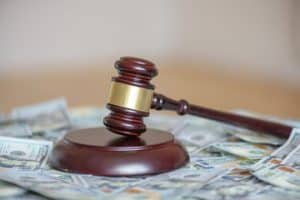
TYPES OF CREDITORS
To understand bankruptcy, credit and debt it helps if you understand the different types of parties involved in the process. So lets focus in this posing on creditors. It is also important to understand the different types of debt in a bankruptcy. So lets focus on Secured versus Unsecured Creditors.
SECURED CREDITORS
What happens when a creditor lends money and the debt is not repaid? It’s obvious: the creditor loses money. Instead of making a profit like they planned, they’ve taken a risk, lost and are placed in a difficult situation. The more creditors get burned, the less businesses and individuals are willing to take financial risks thus providing less opportunities for the rest of us to secure a payment on a home or obtain a better financial position in our lives. To prevent this scenario, secured creditors are asked to provide an added measure of security for the funds. Prior to signing an agreement with the borrower, secured creditors are granted a lien against an asset or piece of property that belongs to the debtor as terms of insurance. If the borrower fails to meet his obligations this asset is then turned over to the creditor which they can take and sell at the best price to make up for all or at least part of the loss they might have otherwise incurred.
A great example of this might be with a mortgage company. As a secured creditor the mortgage company agrees to give you a loan for a house, but if you fail to meet your payments they can foreclose on the property and reap the rewards of that process. Their loss is then at least partially made up by the income from that sale. Liens give creditors an added measure of security by enabling them to seize items of value to repay loans that go bad.
UNSECURED CREDITORS
On the other hand, unsecured creditors are not reimbursed with an individual’s assets if the loan is not repaid. Money or services are given with the only assurance of the consumers promise to meet the required payment deadlines. Typical unsecured creditors in your day to day life might be the education system, hospital or your local dentist office. These groups cannot seize assets in the absence of payment. Same goes for your credit card company. They cannot repossess your car or foreclose on your house if you are unable to pay. Don’t get me wrong, there are consequences for failing to repay a loan, however with the circumstances of unsecured creditors, they themselves are less likely to receive any form of immediate compensation.
Secured versus Unsecured Creditors. Everyday we work with people struggling with their financial problems. We can help you. Call us at 801-221-9911 to set a consultation to see if bankruptcy is a option in your situation.